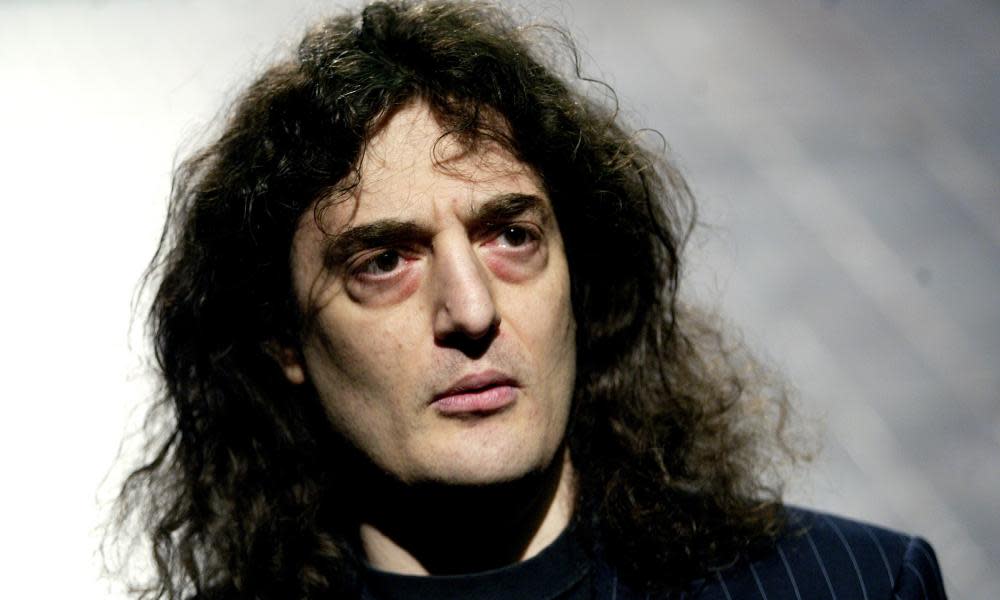Jerry Sadowitz and the shifting boundaries of free speech

In Brian Logan’s reasonable and informed article (Who went too far: Jerry Sadowitz or those who cancelled his Edinburgh fringe show?, 16 August), I think he missed a couple of salient points.
First, the comparison between Jerry Sadowitz’s use of the P-word and George Carlin’s Seven Words You Can’t Say on Television routine is inapplicable. Save for one of them (cocksucker), none of his list of verboten words are in any way a targeted, intentional declaration of hate. Indeed, even “cocksucker” is broadly used to insult straight and gay people alike. Carlin was confronting the taboo of universally applied expletives; the P-word is no such thing.
Second, venues are perfectly entitled to request to review the content of a performance before agreeing to host it. If, in this instance, given Sadowitz’s reputation, the Pleasance theatre neglected to do so, then surely it forfeits the right to censure thereafter (without compensating the performer and his disappointed audience for its own negligence)? No venue is – nor should be – compelled to host an act that contradicts its values, but it had every opportunity to make such conditions explicit in its contract. While it’s ostensibly admirable that the Pleasance has chosen to act in defence of its principles, it’s implausible to claim that his controversial material might come as a surprise.
I should caveat the above by confirming that I’ve not seen Sadowitz’s show and, as Logan points out, context is important. I often wince at, say, individual lines from Doug Stanhope’s stuff while at the same time appreciating that his provocative statements are crucial to the subsequent points he makes so brilliantly.
Matthew O’Connor
London
• Brian Logan says that he’d defend “a space for comics like Sadowitz, performing one of humour’s age-old functions, as a safety valve for our darkest, most transgressive impulses”. There is a deep irony in using the word “safety” in this context. Many women, black, Asian and minority ethnic people, and LGBTQ+ people, including me, believe safety is compromised and eroded by the legitimisation of sexism, misogyny, racism and homophobia through comedy.
As Logan says, what is considered acceptable or offensive is not fixed, and changes according to trends. However, when audience members who were already aware that they were attending a performance that pushed the boundaries feel forced to leave, it seems clear that a line has been crossed.
Hate speech is prohibited by law, and it is a widely held belief that it can lead directly or indirectly to acts of violence. In the interests of everyone’s wellbeing, especially those whose safety is most fragile, we should be moving away from expressions of hatred as entertainment, not embracing them in the guise of “comedy”.
Name and address supplied
• As readers nod approvingly at Margaret Atwood’s case for Salman Rushdie’s defence of “freedom of artistic expression against all comers” (If we don’t defend free speech, we live in tyranny: Salman Rushdie shows us that, 15 August), they will doubtless see a parallel with the government’s ongoing campaign to keep the culture war well stoked.
The same spirit of freedom that celebrates Rushdie’s right to cause offence must also embrace Jerry Sadowitz’s right to cause offence to venue owners and middle-class audiences at the Edinburgh fringe.
As we defend the right of writers, artists and performers to offend others, we must equally defend their right to write, make and perform material that we ourselves find offensive, otherwise the very notion of artistic freedom is rendered meaningless.
Eddie Duggan
Ipswich, Suffolk
• Have an opinion on anything you’ve read in the Guardian today? Please email us your letter and it will be considered for publication.

 Yahoo News
Yahoo News 
